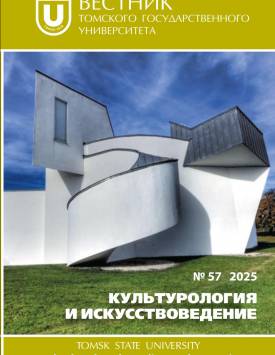The role of generative artificial intelligence in modern design: theoretical considerations
This paper explores the role of artificial intelligence (AI) in modern design, particularly focusing on the theoretical foundations of delegation of functional tasks. It begins by discussing the agency of things from an object-oriented approach and how it relates to AI. The concept of delegation is examined in detail, considering its meaning and implications for design. The capabilities of AI are analyzed, and different levels of AI development are presented. The paper then delves into the shift from humanism to nonhumanism in design, highlighting the changes brought about by generative AI, such as deep human-computer collaboration, data as a core resource, and systematic innovation. It also addresses issues like data quality, design originality, and the integration of AI in various design aspects. Additionally, it touches on AI governance and the influence of object-oriented ontology (OOO) on design thinking. Finally, it concludes that design should aim to maximize the quality of human-centered lives, while also acknowledging the growing importance of design synergy in complex cultures. The authors declare no conflicts of interests.
Keywords
generative design,
artificial intelligence,
delegation,
non-human agents,
object-oriented approachAuthors
| Galkin Dmitry V. | Tomsk State University | gdv_t@mail.ru |
| Weng Wei | Tomsk State University | vivianglia2022@outlook.com |
Всего: 2
References
McPherson, T. (1965) Philosophy of Religion. Van Nostrand.
Newell, A. & Simon, H.A. (1972) Human Problem Solving. Prentice-Hall.
Simon, H.A. (1973) The structure of ill structured problems. Artificial Intelligence. 4(3). pp. 181-201.
Huppatz, D. (2015) Revisiting Herbert Simon's "science of design". Design Issues. 31(2). pp. 29-40.
Rittel, H.W. & Webber, M.M. (1973) Dilemmas in a general theory of planning. Policy Sciences. 4(2). pp. 155-169.
Buchanan, R. (1992) Wicked problems in design thinking. Design Issues. 8(2). pp. 5-21.
Chomsky, N., Roberts, I. & Watumull, J. (2023) Noam Chomsky: the False Promise of ChatGPT: Opinion. New York Times. 8th March. [Online] Available from: https://www.nytimes.com/2023/03/08/opinion/noam-chomsky-chatgpt-ai.html (Accessed: 13th January 2025).
Hinton, G. (2024) Will digital intelligence replace biological intelligence? [Online] Available from: https://www.youtube.com/watch?v=N1TEjTeQeg0 (Accessed: 15th January 2025).
Searle, J. (2009) Chinese room argument. Scholarpedia. 4(8). pp. 3100.
Lotman, Y.M., Uspensky, B.A. & Mihaychuk, G. (1978) On the semiotic mechanism of culture. New Literary History. 9(2). pp. 211-232.
Tamm, M. (2019) Introduction: Juri Lotman's semiotic theory of history and cultural memory. In: Tamm, M. (ed.) Juri Lotman-Culture, Memory and History: Essays in Cultural Semiotics. Palgrave Macmillan Cham. pp. 1-26.
Lotman, Y.M. (2005) On the semiosphere. Sign Systems Studies. 33(1). pp. 205-229.
Benini, A. & DeLeo, J.A. (1999) Rene Descartes' physiology of pain. Spine. 24(20). pp. 2115.
Hospers, J. (1961) Human Conduct: Problems of Ethics. Cengage Learning.
Galkin, D.V. (2014) Osnovaniya sotsial'noy robototekhniki v kontekste sotsial'no-gumanitarnykh issledovaniy [Foundations of social robotics in the context of social and humanitarian research]. Vestnik Omskogo universiteta. 2(72). pp. 167-177.
Harman, G. (2018) Object-oriented ontology: a new theory of everything. Penguin UK.
Morris, M.R., Sohl-Dickstein, J., Fiedel N. et al. (2023) Levels of AGI: operationalizing progress on the path to AGI. arXiv preprint arXiv:2311.02462.
Coulton, P. & Lindley, J.G. (2019) More-than human centred design: considering other things. Design Journal. 22(4). pp. 463-481.

